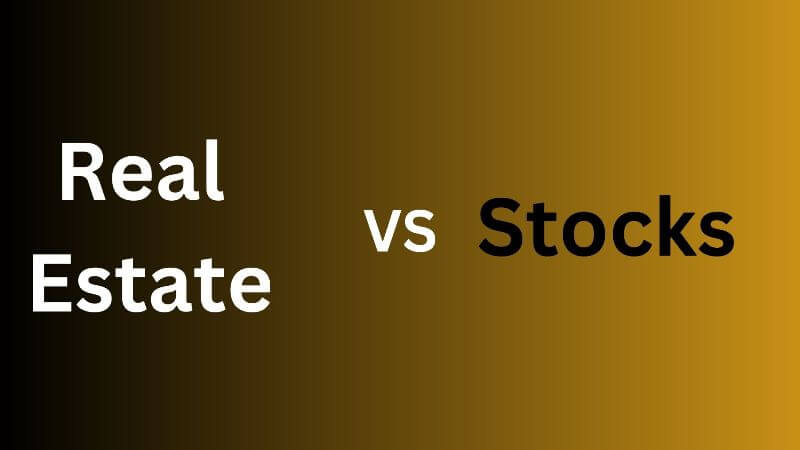Investment conversation between one of my friends and me. Let’s call my friend John.
John: I bought a rental property.
Me: Congratulations! Is it cash flow positive?
John: No, you can’t find a cash flow positive property in Montreal.
I don’t understand people’s attraction towards real estate. We are willing to invest in a negative cash flow property for having the privilege of owning a property.
I think that’s evolutionary. For centuries, people have shown their wealth through real estate. It’s something tangible that they can show off to their friends and to themselves. While me on the other hand, I don’t even know how many shares I own of any particular company. Since I am an index investor, I don’t even know what own other than a few well known names.
Many properties in metropolis such as Montreal, Toronto, Vancouver, are cash flow negative, that means that the cost of the capital, taxes and maintenance exceeds the revenue it produces. The only way to convert it into a profitable venture is to hold it for many years.
With commission rates of 6%, if a person wants to sell the property the following month, they have to raise the price by 12% just to break even.
Assuming property values increases at a rate of 3% per year, a person needs four years in order to break even, and that’s without taking into consideration the time value of money, plus all the labor that’s included in buying and selling of a property, in addition to all the property taxes, insurances, interest expenses and maintenance expenses. In reality, it’s more like six years in order to break even.
On the other hand, the average return on investment in the stock market is about 8% per year. From year one, a person investing in the stock market is already earning some money, or at the very least, collecting some dividends.
Let’s explore some other points.
Liquidity. There is no liquidity in real estate. If you want to sell a property in a hurry, you will have to lower the price considerably. On the other hand, I can sell one million dollars in stocks in seconds without giving much of a discount.
Commission. The commission to buy or sell real estate is usually 6%. In the stock market is generally $10. In some institutions, you can buy and sell many investments such as Index ETFs for free. In some banks, I can sell $1 million worth of ETFs for free.
Diversification. When I invest in the stock market, I am buying thousands of companies (through stock indexes) with one click. I am diversified across industries and event across continents. When a person puts his money in a property, there is very little diversification, all of their money, and more is tied up in a property. Due to fires and inundations , many people have lost their only asset, their properties from day to the other.
Passive investment. When I get my dividends from Royal bank or from TD bank, the money just shows up in my broker’s account. I have to do nothing. Whereas, in real estate, even if you find good tenants, there is the effort of building a good relationship so that the tenants will pay on time. But there is always some upkeep to do. The roof, the plumbing, the electricity, the taxes, the lists goes on and on. Real estate is NOT a passive investment.
Historical Returns. Historically, both, the stock market and the real estate market has had positive returns. Maybe, the real estate market has had higher returns, I don’t know for sure, but I continue thinking that real estate investing is not passive income, it’s a part time job, whereas investing in the stock market can be 100% passive.
Barriers to entry. I can start investing in the stock market with as little as $100. Where as, I don’t see anyone investing in real estate unless you have a significant amount of money.
Leverage. Most regular stock market investors invest without using any leverage, whereas in real estate use 5X leverage, making the investment a higher risk investment.
Cash flow. In the case of my friend John, he started his investment cash flow negative. That means that his monthly expenses are higher than his revenues. I don’t know for how long he will be cash flow negative, eventually he will increase his rents (probably at the rate of 2% increase per year) and one day he will be cash flow positive. On the other hand, if I buy any Canadian bank stock, I will be receiving dividends by the end or the quarter.
Tangible assets. Yes, this is a great advantage of real estate over stocks. If you own a house or any kind of property, you can see it and show it to your friends and family. The pride a person feels when they are showing their property to someone else, it has a great phycological value.
Tax benefits. Governments privilege earnings from capital over earnings from labor. If you have capital gains from real estate or from the stock market, you will be taxed at a lower tax rate than if you earned the same amount or money from working at a regular job.
Appreciation potential: Like stocks, real estate can appreciate over time, potentially providing capital appreciation and increasing the property’s overall value.
Control: Real estate investors have more control over their investments, including property management, improvements, and rental rates. But with more control comes more responsibility.
Ultimately, the better investment choice depends on individual circumstances and preferences. Some investors may choose to diversify their portfolios by including both stocks and rental properties. It’s essential to consider the following factors:
- Risk tolerance: The stock market can be more volatile, while rental properties carry risks associated with property maintenance, vacancies, and property values.
- Investment horizon: Real estate is typically considered a long-term investment, while stocks can provide liquidity for shorter-term goals.
